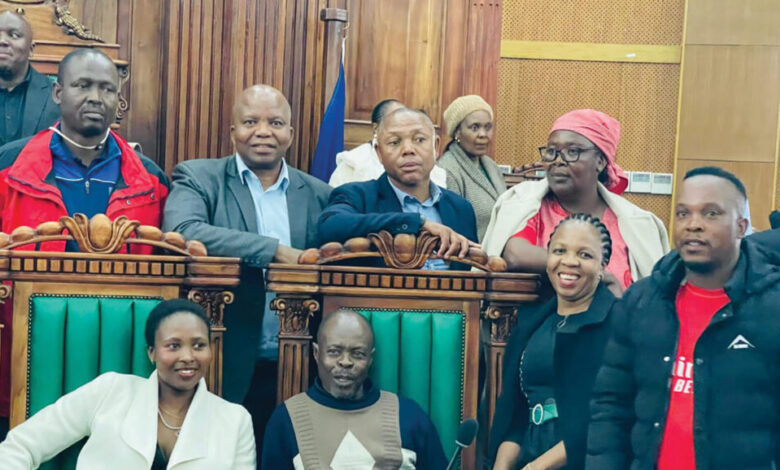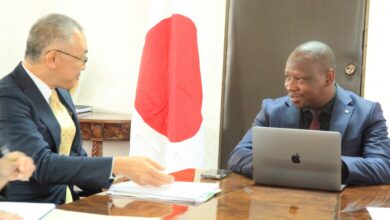Community Councillors Demand Increased Support and Decentralisation Amid Mounting Frustrations

Community councillors across Lesotho have voiced serious concerns over their working conditions, accusing the government of neglecting their vital role as the foundation of local governance. Despite their central function in delivering grassroots services and facilitating national reforms, councillors say they are forced to work without proper resources or recognition.
At the heart of their demands is a significant increase in their monthly allowance — from the current M4,500 to M20,000 — and the long-awaited transfer of power from central government to local government. They argue that these demands are not just about better pay, but about enabling them to fulfil their expanded responsibilities, which were outlined in the October 2023 gazette but not matched with increased funding in the 2024/25 and 2025/26 national budgets.
Speaking before the parliamentary committee on law and public safety, Tumelo Leboto, who represented the councillors, highlighted the severe challenges they face, especially those working in mountainous regions. He stressed the need for mountain allowances, similar to those provided to public servants like nurses, who also operate in difficult and remote conditions.
Leboto stated that the physical and logistical challenges councillors face in the highlands are extreme. He described working in inclement weather, navigating rough terrain, and managing with limited access to basic services, all while fulfilling a long list of duties. He argued that their M4,500 monthly allowance does not reflect the demands of the job, and called for urgent adjustment.
“For far too long, we have been overlooked and ignored, even though we are the cornerstone of local governance,” said Leboto. “The roots of our country’s development are in local government, but we have not been cared for as we should be.”
He further criticised the outdated Local Government Act of 1997, which continues to dictate councillors’ remuneration despite their workloads having increased substantially over the years. While the Act assumes councils meet once per month, Leboto revealed that many now meet as often as three times a week — without any increase in compensation.
A major concern raised by the councillors is the delay in implementing the 2014 Decentralisation Policy. Leboto said that despite the policy being in place for over a decade, the government has hesitated to give full authority and budgetary control to local governments. This, he added, hampers the ability of councillors to respond to community needs and undermines the goal of effective governance.
Councillors also pointed out the lack of enforcement of key provisions in the Public Financial Management and Accountability Act of 2011. Sections 21 and 34 of the Act, which address the allocation of funds to local governments, remain dormant, further weakening local authorities’ capacity to deliver services.
Leboto condemned the practice of taxing councillors’ already limited allowances through VAT, calling it “unjustifiable,” especially in light of their workload and responsibilities. He insisted that frequent council meetings are not excessive, but rather necessary to ensure timely and effective service delivery.
Leader of the opposition, Mathibeli Mokhothu, backed the councillors’ calls, stating that decentralisation should be a top national priority. He urged the government to empower local governments not just with responsibilities, but also with the necessary resources to manage roads, water services, schools, clinics, and land.
Mokhothu criticised the central government for interfering in local matters such as road infrastructure and failing to fund key community projects, including the so-called ‘likhakeletsi’ (silt traps). He said this interference has become a major obstacle to effective service delivery.
The chairperson of the parliamentary committee, Mothofela Ramakatsa, acknowledged the concerns, confirming that discussions around decentralisation and councillors’ salaries had already taken place in parliament. However, he admitted that progress had stalled due to poor coordination between the Ministries of Local Government and Finance.
To address the issue, the committee has resolved to summon the relevant ministries and stakeholders to explain the delays. Ramakatsa reaffirmed the importance of decentralising power to ensure that services reach communities efficiently and on time.
“We must strive to transfer power to local government as this will help bring services closer to the people,” said Ramakatsa. “The committee will now invite those responsible for this delay to account for their inaction.”
As the calls for reform grow louder, community councillors continue to insist that the country’s long-term stability and development depend on a fully empowered local government system that recognises their role and provides them with the resources they need.
Join 'Lesotho News' WhatsApp Channel
Get breaking Lesotho news — delivered directly to your WhatsApp.
CLICK HERE TO JOIN



